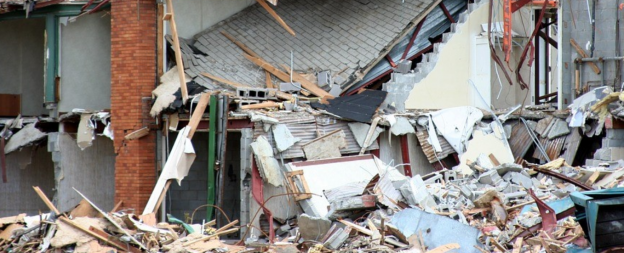Summary
Sometimes, life falls apart at the seams. Everything you thought was true turns on its head. Nations crumble, the everyday routine is shattered, societies abandon morality for insanity, orthodox churches embrace false teaching, or friends and family turn enemy. Psalm 11 addresses this situation in life – what does a Christian do when everything is overturned?
Written by King David when his life fell apart (possibly Absalom’s rebellion – 2 Samuel 15-19), this psalm expresses confidence in God when everything you thought was fixed is overturned. After questioning the advice of his advisers to flee instead of trusting in God, David expresses his confidence in God to deliver and uphold his people.
Our passage explained
v1-3
Psalm 11 opens with an expression of confidence by King David, which sets the tone for the psalm: “In the LORD I take refuge” (v.1). David does not trust in his own strength, but in his covenant-keeping God, who has made promises and sworn an oath to be a God to his own people.
Because David trusts in God for his salvation, he asks his advisers “how can you say to my soul, ‘Flee like a bird to your mountain, for behold, the wicked bend the bow; they have fitted their arrow to the string to shoot in the dark at the upright in heart; if the foundations are destroyed, what can the righteous do?’” (vv.1-3). This attitude expresses both self-reliance, and a defeatist attitude.
Firstly this attitude expresses self-reliance because the advice suggests that David should flee to some mountainous hideout, instead of trusting in God. Mountains were natural defensive places in David’s day until very recent times – they forced attackers to assault uphill and also generally allowed a better view of the surrounding area. They also contain caves in which to hide, like birds hiding in the nooks and crannies of hills. Fleeing to a place of refuge instead of trusting in God was an expression of self-reliance.
But secondly this view is defeatist. The advisers encourage David to flee because the wicked have notched arrows to “shoot in the dark at the upright in heart” (v.2), taking them by surprise when they cannot see their attackers. The attack of the wicked so overturns the advisers’ view of the world (and David’s too), that they describe it as an attack on the very foundations of things, and weakly ask in response “what can the righteous do?” (v.3).
v4-7
The despair of King David’s advisers is answered in verses four to seven. Firstly, David recalls the sovereign rule of God. “The LORD is in his holy temple; the LORD’s throne is in heaven; his eyes see, his eyelids test the children of man” (v.4). God sits enthroned in heaven, where he sees and weighs all men’s deeds.
Secondly, David recognises that the righteous God will not let the wicked go unpunished. “The LORD tests the righteous, but his soul hates the wicked and the one who loves violence. Let him rain coals on the wicked; fire and sulfur and a scorching wind shall be the portion of their cup” (vv.5-6). God sees and examines both the righteous and unrighteous, but his very being reserves his anger for the wicked, who will be judged like the fires which rained down on Sodom and Gomorrah (Genesis 19).
The reason for God’s acts of judgment and David’s confidence in God’s righteous, sovereign reign is God’s nature and character. “For the LORD is righteous; he loves righteous deeds; the upright shall behold his face” (v.7). David’s covenant-keeping God is righteous, and loves those who serve him. Those he loves will experience his presence as he delivers them from the wicked to life with him.
Our passage applied
David’s confidence in God expressed in this Psalm shows us how to react when it seems like the world has turned upside down. David understood that whatever went on, whether seen as good or bad from our perspective, God was in control. Nothing has changed from then. God still sits on his throne, casting his eyes upon men, judging between those who trust in him and those who do wicked deeds. Nothing escapes his sight.
We notice also that this passage describes two ways people may wrongly act when calamity comes. First, people can trust in their own resourcefulness alone to ride things out. Secondly, people can despair at the downfall of what they held dear. Both of these reactions are not how we should respond to the troubles of life.
It can be easy to despair at the decline of a denomination, the regression of our civilisation to Greco-Roman Pagan “values”, or the sudden betrayal of friends or family held dear. But Psalm 11 encourages us to place our confidence and trust in God, despite the very foundations of life being shaken.
God is still sovereign, Jesus reigns, and Christ has borne God’s wrath for our sins at the Cross. So at the day of reckoning we will know fully the joy of God’s presence which we experience now as his people, while the wicked will know God’s vengeance.
Resources
Questions? Please contact us. Inspired? Come and worship with us on Sundays.

